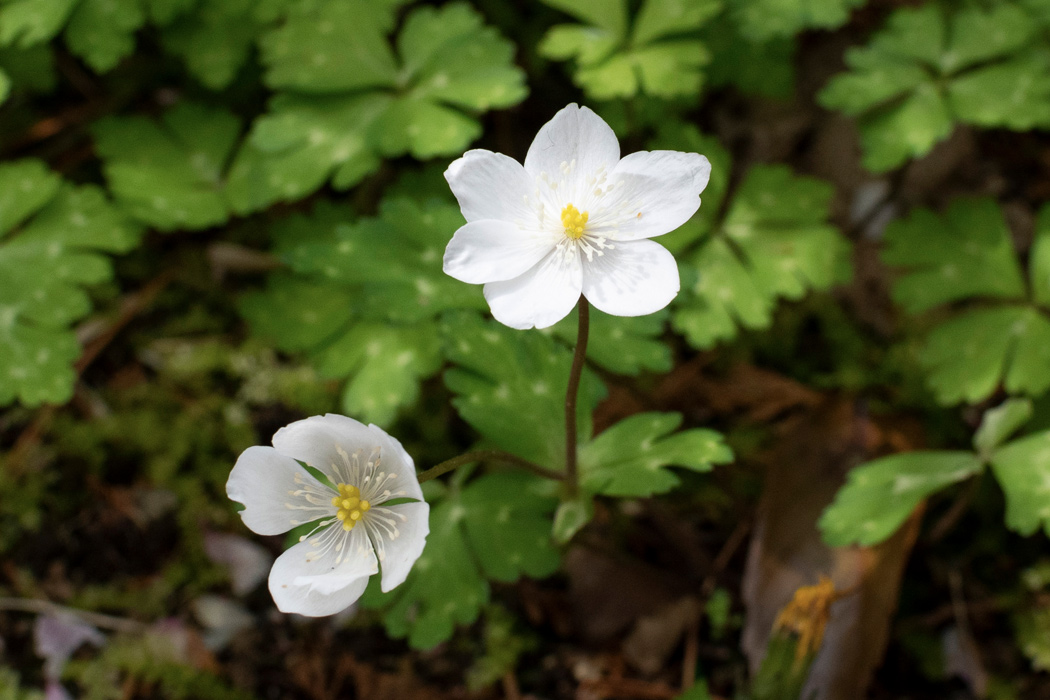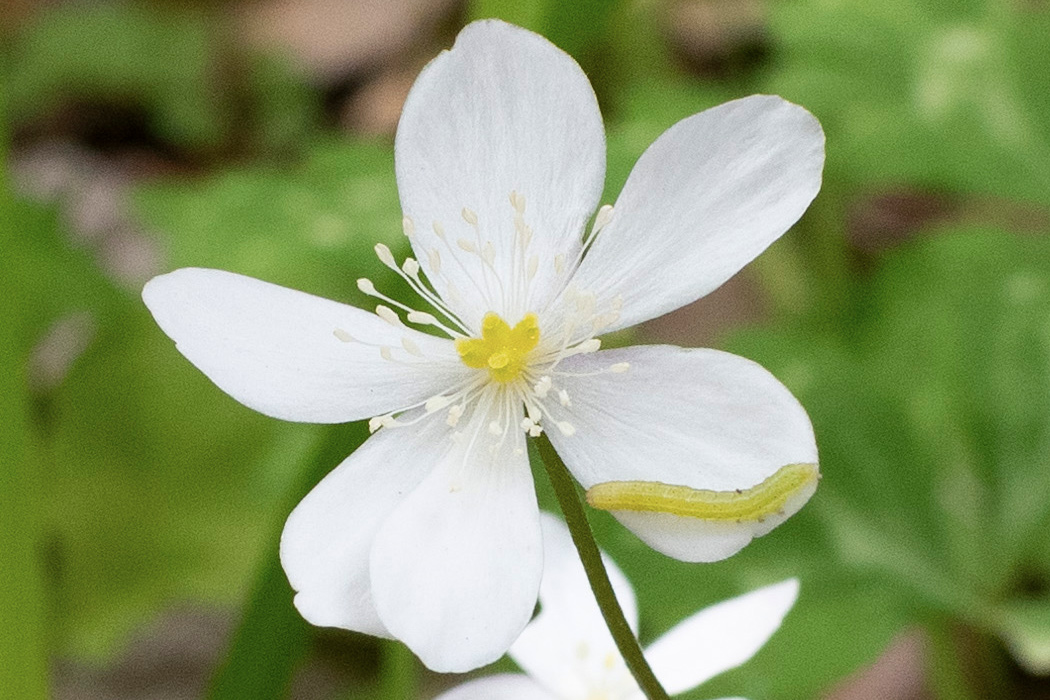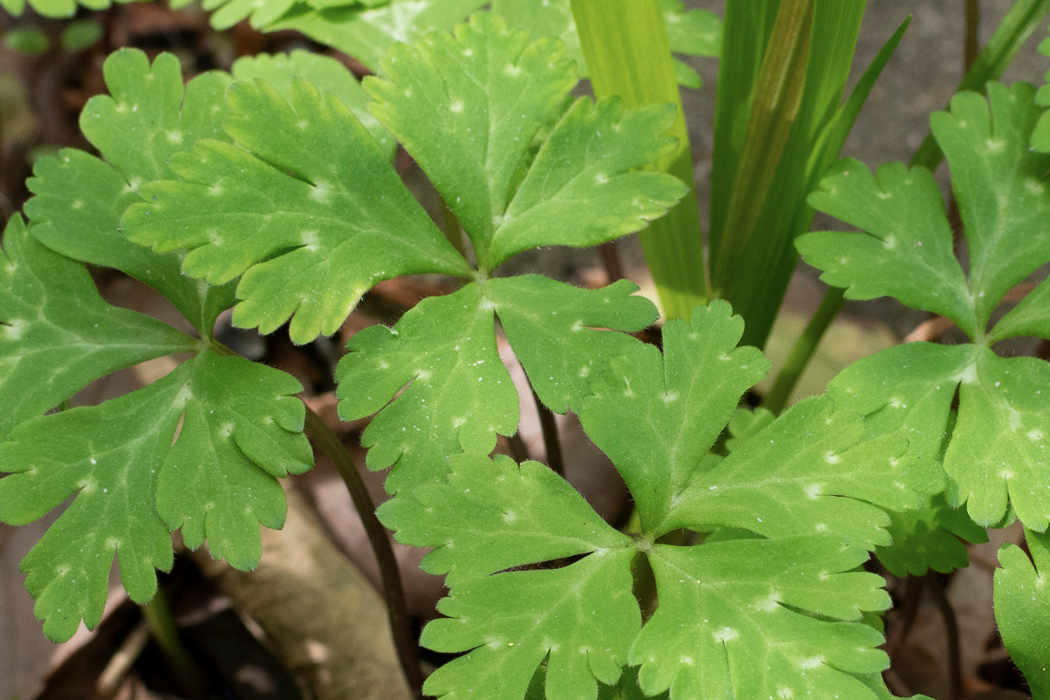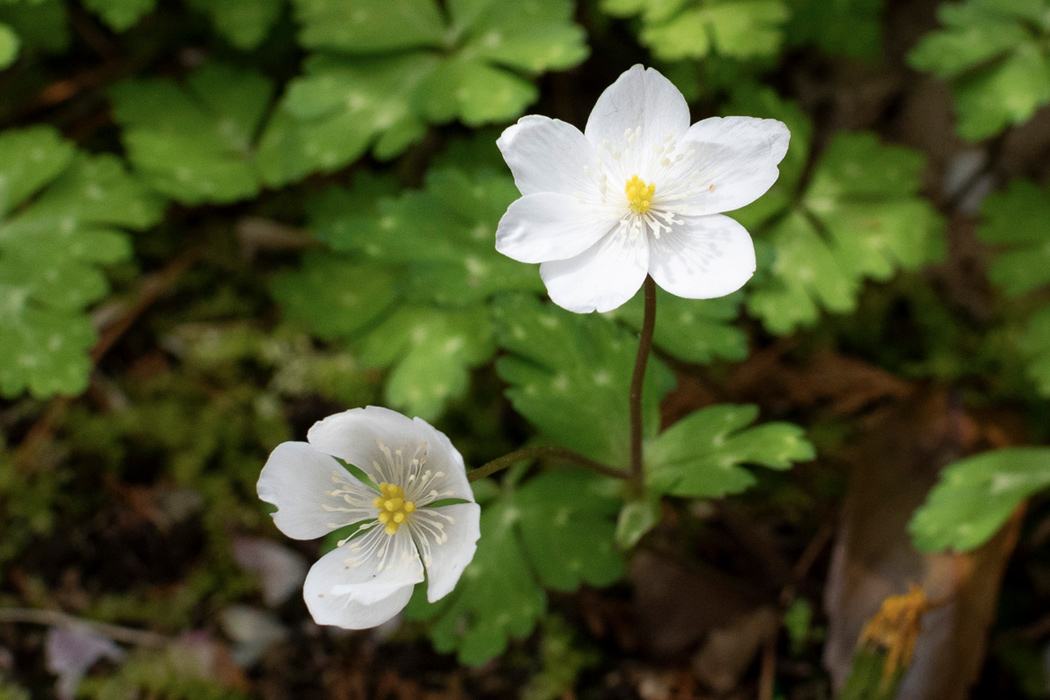
wind flower
white flowers blooming in pairs.
| Scientific name | Anemone flaccida |
| English name | wind flower |
| Japanese name | 二輪草 |
| Classification | Eudicots |
| Classification details | Ranunculales Ranunculaceae |
| Full length | 1.5-2.5cm (flower) 15-25cm (height) |
| Distribution | Distributed in East Asia. From Hokkaido to Kyushu in Japan. |
Characteristics
A plant with two white flowers. Two flowers are usually in bloom, but there are also one and three flowers. The white sepals look like petals. There are usually 5 sepals, but some have 6. The pistil is yellow, and the stamen is paler than the pistil. The leaves are basal and split into three from the stem. The surface of the leaf is not glossy, and the base of the cut is whitish.
How to eat nirinsou
The leaves of nirinsou are edible and can be eaten as boiled. However, since Aconitum, also belonging to the Ranunculaceae family, has strong toxicity, it is desirable to collect it after surely identifying it by its flowers and buds.
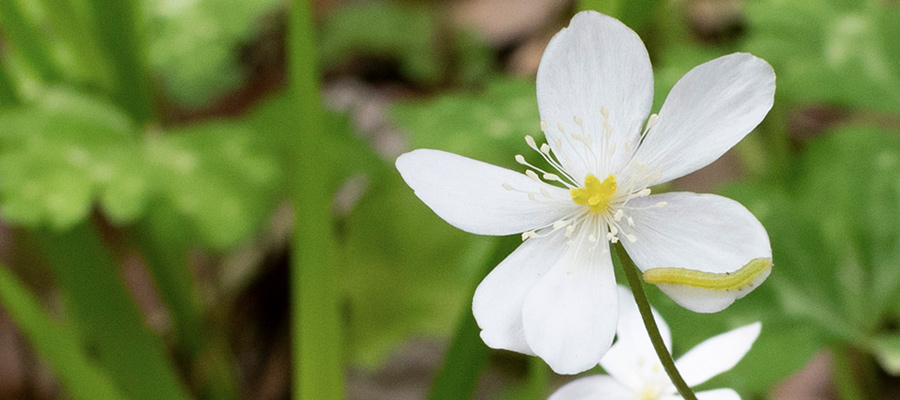
Ecology
White flowers bloom from March to June. It grows by underground stems and forms colonies. It mainly grows in clusters on the ground of forests, but it also grows in parks and home gardens. The photo above was taken in my garden in April.
Habitat
I found a place growing in clusters in the woods of Hachioji City. I took a picture of a small caterpillar on the sepal. The small sepals, which were the size and shape of cherry blossom petals, were beautiful.
Pictures
Introducing a picture of wind flower.
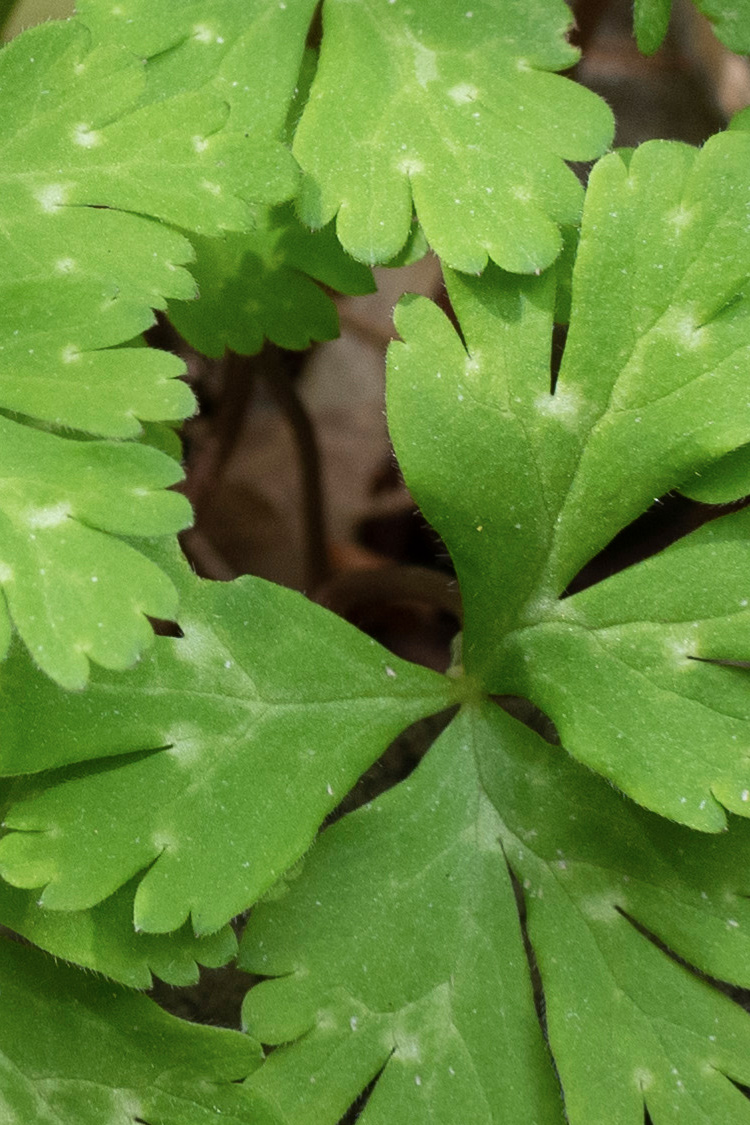
Picture book

Golden-ringed dragonfly
Yellow stripes and bright green compound eyes. It takes about 5 years to reach adulthood.......ead more.

Piano fangblenny
Elongated body with black dots.......ead more.

Crested serpent eagle
It has a crest of white feathers on the back of its head.......ead more.

Japanese spine-less cuttlefish
From the spread of discharge that makes your buttocks look like it's burning.......ead more.

---
dark color reminiscent of the crimson cords of weapons......ead more.
